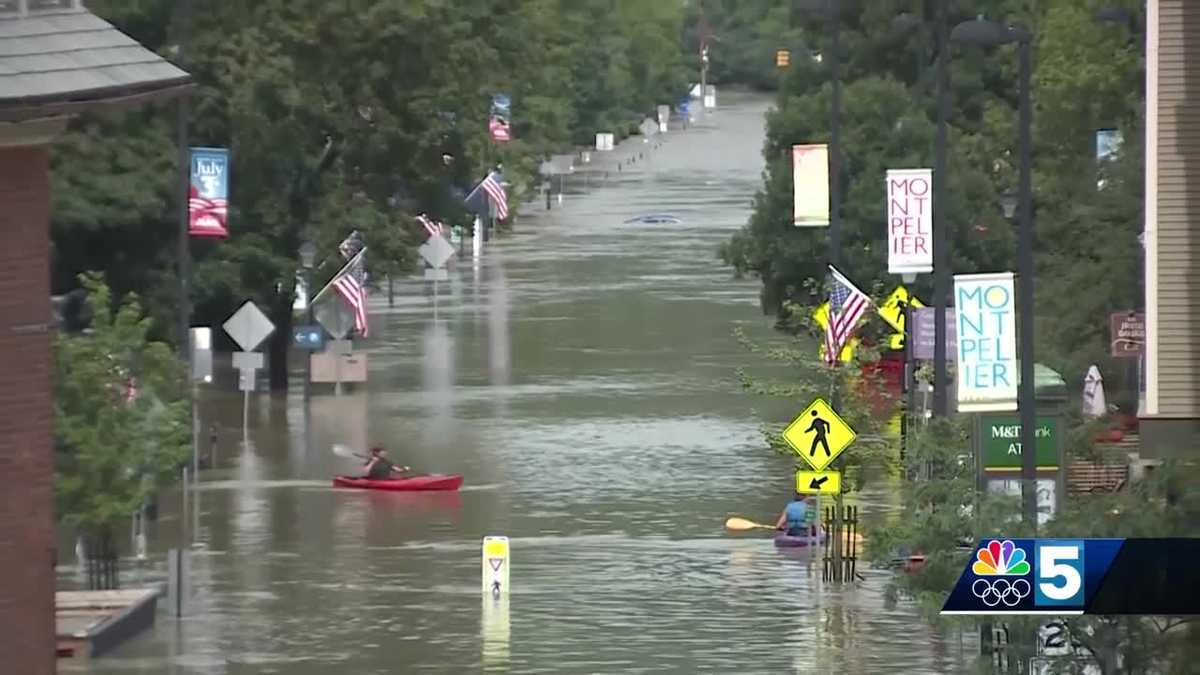
Vermont poised to become first US state to charge big oil for climate damage
Posted on May 9, 2024
Vermont is poised to pass a groundbreaking measure forcing major polluting companies to help pay for damages caused by the climate crisis, in a move being closely watched by other states including New York and California.
Modeled after the Environmental Protection Agency’s Superfund program, which forces companies to pay for toxic waste cleanup, the climate superfund bill would charge major fossil fuel companies doing business within the state billions of dollars for their past emissions.
The measure would make Vermont the first US state to hold fossil fuel companies liable for their planet-heating pollution.
“If you contributed to a mess, you should play a role in cleaning it up,” Elena Mihaly, vice-president of the Conservation Law Foundation’s Vermont chapter, which is campaigning for the bill, said in an interview.
If passed, the bill will face a steep uphill battle in the courts. But supporters say the first-of-its-kind legislation could be a model for the rest of the country.
Four other states are weighing similar initiatives. Senators Bernie Sanders from Vermont and Chris Van Hollen of Maryland also attempted to include a federal version in the infrastructure bill passed in 2022, though it was omitted from the final draft. (The measure would have raised $500bn.)
Advocates for the Vermont bill notched a major win on Friday when the state’s house of representatives advanced the measure with a preliminary vote of 100-33 – enough support to overcome a potential veto by the state’s Republican governor, Phil Scott. On Monday, the bill passed the House in a 94-38 vote.
Within the next week, it will receive a final vote in the senate, where it received preliminary approval on a 26-3 vote last month. It will then head to Governor Scott’s desk for final approval; if he shoots it down, supporters are confident that they have the votes to override a veto.
“Climate impacts are mounting everywhere and they’re coming with a price tag” said Jamie Henn, director of Fossil Free Media, which is campaigning in support of climate superfund legislation across the US. “Of course we’re going to see efforts to force the companies responsible for disasters to pick up the bill.”
Climate impacts
Vermont is known for its temperate summers, but last July, catastrophic floods pummeled the state. Roads became rivers, bridges were decimated and two people were killed by the rushing waters.
“It was devastating,” said Mihaly.
She is originally from California, a state that has seen widespread devastation from wildfires and other climate-related disasters. “I had before considered Vermont a haven, a safe choice from a climate perspective. Last summer was a wake-up call,” she said.
The floods wreaked more than $1bn in damages, just 11 years after Tropical Storm Irene devastated nearly all of Vermont. As the climate crisis persists, research shows future flooding events could be even more devastating and costly.
The legislation would compel Vermont’s state treasurer, Mike Pieciak – who supports the effort – to set up a fund for climate damages. To do so, he would be required to determine how much money to collect to pay for climate-related impacts to Vermont’s public health, biodiversity, economic development and other damages. (The bill text does not include a specific figure to be collected, but an initial rough estimate from the Vermont Public Interest Research Group suggests the figure could be as much as $2.5 bn.)
The state would also have to work with scientists to figure out how much of that damage is attributable to climate change. Then, officials would calculate how much each major oil and gas company within the state contributed to it, based on the emissions from their products between 1995 and 2024. To do so, they would use the Carbon Majors database – an account of the world’s largest polluters’ contributions to the climate crisis.
The money collected would be used to fund projects to improve climate adaptation and resilience, as determined by the state’s Agency of Natural Resources.
A new model for liability
If passed, the measure could serve as a model for the rest of the country as interest in climate accountability is growing, and as New York, California, Maryland and Massachusetts weigh similar initiatives.
New York’s measure, which would collect $30bn, sailed through the state’s senate this week after being omitted from the state’s budget earlier this year. Advocates are now hoping for a full state assembly vote before the session ends on 6 June.
“While New Yorkers brace for the rising and costly impacts of climate change, fossil fuel profiteers are reaping record profits,” said Eric Weltman, senior New York organizer with the environmental group Food and Water Watch. “It’s time these big oil corporations paid to clean up their mess.”
Meanwhile, the California measure will face a challenging vote in a in senate committee next week. Massachusetts’ and Maryland’s measures have stalled.
All five states considering climate superfund bills have also filed lawsuits against big oil for allegedly attempting to sow doubt about the climate crisis despite longstanding knowledge of the dangers of burning fossil fuels. But unlike the lawsuits, the legislative proposals do not requite proof of that history of deception.
“This bill is not about punishing big oil for deceiving the public,” said Mihaly.
Spreading knowledge of that deception, however, has helped build support for the measure. During a state senate committee vote on the bill in March, for instance, the Republican senator Robert Norris said he was initially “hesitant” about the bill but chose to support it after learning about the fossil fuel industry’s misinformation campaigns.
“I was not aware … the large companies knew about this in the 50s and 60s and so forth and still did nothing to address this,” he said.
